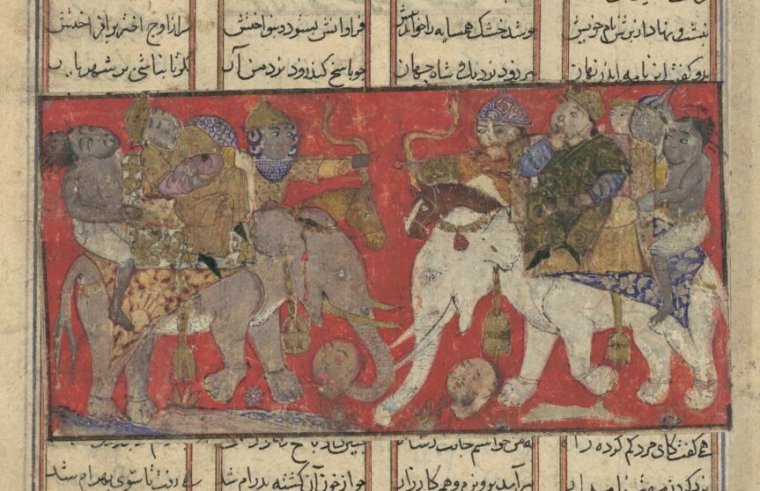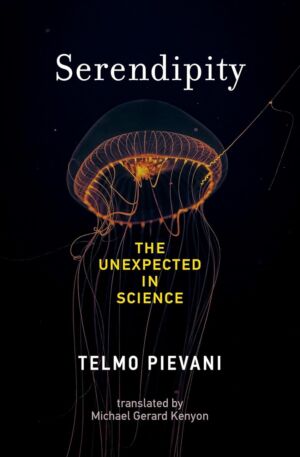
The three princes of Sarandib—an historical Persian title for Sri Lanka—get exiled by their father the king. They’re good boys, however he desires them to expertise the broader world and its peoples and be examined by them earlier than they take over the dominion. They meet a cameleer who has misplaced his camel and inform him they’ve seen it—although they haven’t—and show it by describing three noteworthy traits of the animal: it’s blind in a single eye, it has a tooth lacking, and it has a lame leg.
After some hijinks the camel is discovered, and the princes are right. How may they’ve identified? They used their eager observational expertise to note uncommon issues, and their wit to interpret these observations to disclose a reality that was not instantly obvious.
It’s a very outdated story, typically involving an elephant or a horse as an alternative of a camel. However that is the model written by Amir Khusrau in Delhi in 1301 in his poem The Eight Tales of Paradise, and that is the model that one Christopher the Armenian clumsily translated into the Venetian novel The Three Princes of Serendip, revealed in 1557; a publication that, in a roundabout method, introduced the phrase “serendipity” into the English language.
In no model of the story do the princes unintentionally stumble throughout one thing essential they weren’t on the lookout for, or discover one thing they have been on the lookout for however in a roundabout, unanticipated method, or make a worthwhile discovery based mostly on a false perception or misapprehension. Likelihood, luck, and accidents, comfortable or in any other case, play no function of their story. Fairly, the trio use their astute observations as fodder for his or her abductive reasoning. Their principal expertise is their potential to identify shocking, sudden issues and use their observations to formulate hypotheses and conjectures that then permit them to infer the existence of one thing they’ve by no means earlier than seen.
Defining serendipity
That is how Telmo Pievani, the primary Italian chair of Philosophy of Organic Sciences on the College of Padua, ultimately involves outline serendipity in his new e book, Serendipity: the Surprising in Science. It’s hardly a mind-bending or world-altering learn, however it’s a cute and interesting one, particularly when his many tales of discovery veer into ruminations on the character of inquiry and of science itself.

He begins with the above-mentioned romp by world literature, culminating within the joint coining and misunderstanding of the time period as we all know it right this moment: in 1754, after studying the favored English translation entitled The Travels and Adventures of Three Princes of Serendip, the mental Horace Walpole described “Serendipity, a really expressive phrase,” as “discoveries, by accidents and sagacity, of issues which they weren’t in quest of.”
Pievani is aware of so much, however like a lot, in regards to the historical past of science, and he places it on show right here. He shortly debunks the entire situations of alleged serendipity which can be all the time trotted out: Fleming the microbiologist had been learning antibiotics and trying to find a commercially viable one for years earlier than his moldy plate led him to penicillin. Sure, Röntgen found X-rays by a fluke, but it surely was solely due to the coaching he obtained in his research of cathode rays that he acknowledged he was observing a brand new type of radiation. Loads of individuals over the course of historical past splashed some quantity of water out of the baths they have been climbing into and watched apples fall, however solely Archimedes—who had lately been tasked by his king to determine if his crown was made completely of gold—and Newton—polymathic inventor of calculus—leapt from these (in all probability apocryphal) mundane occurrences to their well-known discoveries of density and gravity, respectively.
After allotting with these drained outdated saws, Pievani then suggests some circumstances of doubtless actual—or sturdy, as he deems it—serendipity. George de Mestral’s inventing velcro after noticing burrs caught to his pants whereas mountaineering within the Alps; he definitely wasn’t trying to find something, and he parlayed his statement right into a helpful know-how. DuPont chemists’ creating nylon, Teflon, and Put up-it notes whereas enjoying with polymers for assorted different functions. Columbus “discovering” the Americas (for the fourth time) since he thought the Earth was a couple of third smaller than Eratosthenes of Cyrene had accurately calculated it to be virtually two thousand years earlier, forgotten “attributable to reminiscence loss and Eurocentric prejudices.”



